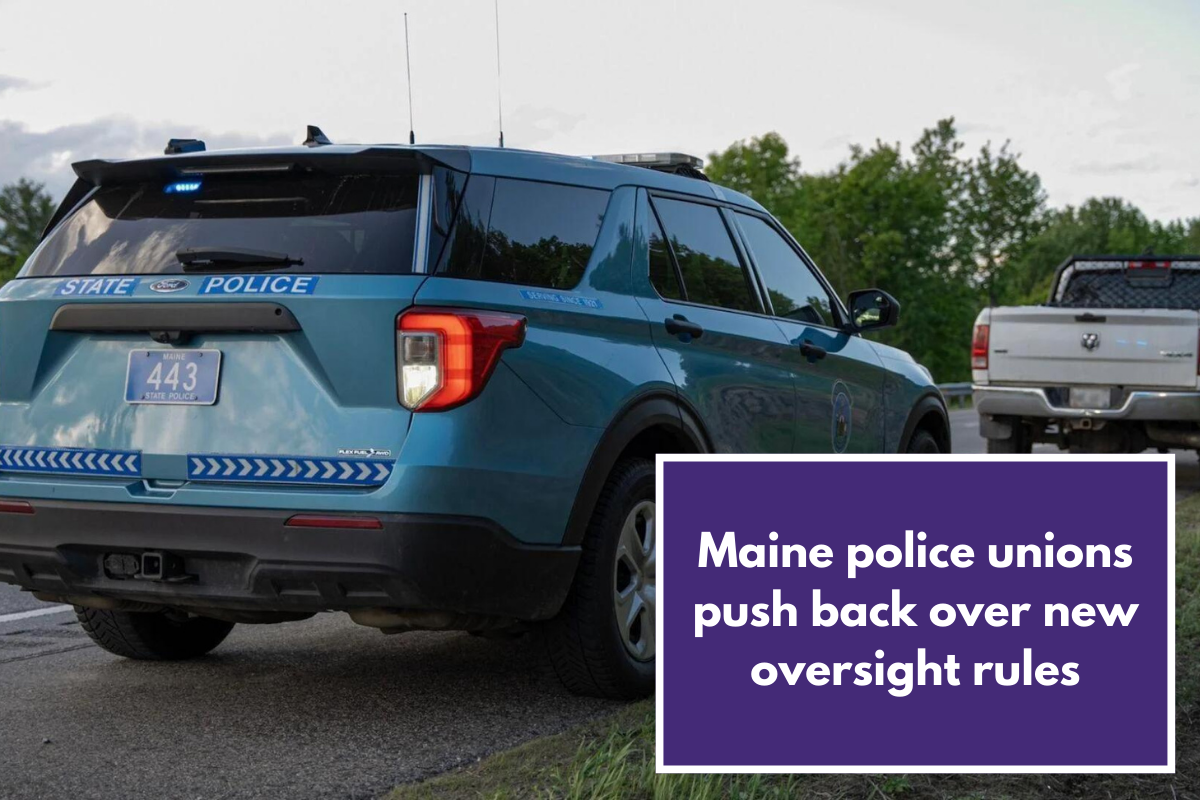Police groups in Maine are against a plan to give the state’s law enforcement certification board more disciplinary power. They say the new rules don’t follow due process and will make it harder to hire and keep officers.
Police and prison guards in Maine are certified by the Maine Criminal Justice Academy. The academy is thinking about new rules that would punish officers for things like harassing civilians, lying in official reports about spoken or written communications, having a controlled substance on duty, and acting in a way that would “significantly diminish the public’s confidence” in law enforcement.
The new rules, which have the backing of most top law enforcement officials, come three years after the state legislature approved plans to give the academy more power to punish officers and give the public more information about bad behaviour by police and prison guards.
The Maine Association of Police and the Maine State Law Enforcement Association, on the other hand, recently told the agency that they were “alarmed and concerned” about the new rules.
They said that the changes “shock the conscience of the already established, clear statutes, regulations and processes that are already custom and practice and very much effective.”
“These expansive changes will not only have an irrecoverable effect on the administration of due process for the regulation of individual certificates, but have also an instant chilling effect in the recruitment, and most notably the retention of certified law enforcement officers,” the group said. “These changes will chart a course that cannot be altered or stop the bleeding we are currently experiencing in our ranks in any tangible or timely way.”
In reaction to the death of George Floyd in 2020, Maine was one of several states that tried to make police officers more responsible when they did something wrong.
The law that changed the standards for accountability was actually passed because of sexual harassment claims against a county sheriff in 2018 and worries that police weren’t responding to reports from civilians.
The new rules say that police officers can be punished if they abuse someone because of their race, colour, sex, sexual orientation or gender identity, religion, age, ancestry, national origin, or family status. This could be “unwelcome advances, comments, jokes and other verbal or physical conduct.” The board could also punish a cop for lying on their application to work for the agency.
It is against the law for sheriffs, police chiefs, or state police leaders to not report an officer’s conviction or wrongdoing or to investigate claims of wrongdoing within 30 days. If they don’t, the board could punish them.
However, the police unions, who said they had talked to their lawyers, said the changes were “cloaked in vagueness” and were meant to give the board and a citizen complaint panel “unchecked power” to make choices that could affect officers’ careers.
They also say that the planned changes go against a decision by the U.S. Supreme Court that said the courts are the right place to decide how credible an officer is.
“To have this undefined and surreptitious ‘shadow process’ creates fertile ground for due process to be trampled underfoot of powerful and external influences including political, local and public opinion,” unions wrote.











Leave a Reply